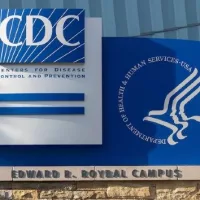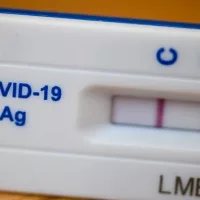
(NEW YORK) — After a monthslong investigation by the U.S. Food and Drug Administration into applesauce pouches tainted with lead, the agency suspects the contaminated products were the result of a manufacturer cutting corners to save money, according to a senior U.S. official.
The official spoke to ABC News on condition of anonymity in order to discuss details of the ongoing internal investigation.
“They think the company deliberately sourced cheap materials,” the official told ABC News of the FDA’s latest findings.
The Centers for Disease Control and Prevention reported more than 205 total confirmed and probable cases as of Dec. 20, though that number may also include cases counted separately by the FDA.
Politico first reported on Friday that a top FDA official said a leading theory is that the tainted applesauce was an “intentional” act.
“The FDA can confirm that one of the theories the agency is exploring regarding the high lead levels in the recalled cinnamon applesauce pouches is the potential that the cinnamon contamination occurred as a possible result of economically motivated adulteration,” the agency said in a statement. “As this is an ongoing investigation, the FDA can only confirm this is one of the theories at this time.”
A second official told ABC News that not following safety protocols would be seen by regulators as intentional.
The FDA first advised parents and caregivers in an Oct. 28 health alert not to buy or give children WanaBana apple cinnamon fruit puree pouches “because the product may contain elevated levels of lead.”
The company announced the voluntary recall of its 2.5-ounce fruit puree pouches on Oct. 30, which was later expanded on Nov. 9 to include products from its private label brands Schnucks Apple Sauce 90g pouches with cinnamon and Weis Cinnamon Apple Sauce.
The FDA announced earlier this week there have been 65 reports of adverse events potentially linked to the recalled product in 27 states to date. Those reports included children younger than 1 and up to 6 years of age.
On Dec. 5, the FDA “initiated an onsite inspection at the Austrofoods facility located in Ecuador” where “ingredient sample collection is underway.”
In a Dec. 12 update, the agency said it was working with Ecuadorian authorities “to gather information about Negasmart, the supplier of the cinnamon to Austrofoods, including whether the cinnamon in the recalled products was used in other products exported to the United States.”
The FDA confirmed with Ecuadorian authorities at the time that, “of Negasmart’s direct customers, only Austrofoods ships product to the US.” The agency also confirmed that “Negasmart does not directly export products to the US.”
“Cinnamon samples collected from the lots used in recalled products will undergo laboratory analysis. FDA will update this advisory to share the sample results once the analysis is complete,” the FDA stated.
The FDA first announced the investigation into WanaBana when the agency was made aware of four children with elevated blood lead levels, indicating potential acute lead toxicity, by the North Carolina Department of Health and Human Services and the North Carolina Department of Agriculture & Consumer Services.
Less than a week later, the investigation was transferred to the FDA’s Coordinated Outbreak Response & Evaluation Network in collaboration with the CDC. Two additional brands were added to the recall in the Nov. 3 update: Schnucks cinnamon-flavored applesauce and Weis cinnamon applesauce pouches.
The North Carolina Department of Health and Human Services investigation initially identified the products “as a potential shared source of exposure,” the FDA said at the time, citing analysis that detected “extremely high concentrations of lead.” At that time, the firm agreed to voluntarily recall all WanaBana apple cinnamon fruit puree pouches regardless of expiration, per the FDA.
“FDA is aware that recalled WanaBana Apple Cinnamon Puree is still on the shelves at several Dollar Tree stores in multiple states,” the FDA said. “FDA is working with the firm to ensure an effective recall.”
Austrofood was asked by the Ecuadorian government to suspend all activities since Nov. 15, 2023, according to the National Agency of Health Regulation, Control and Surveillance.
The agency told ABC News it is aware of the situation and issues regarding the Pichincha-based food manufacturer and the Ecuadorian government through the National Agency of Health Regulation, Control and Surveillance has started an investigation independent from the FDA.
Officials in Ecuador also confirmed that the level of lead was above the regular numbers. The issue is in the cinnamon powder only.
Ecuador is currently preparing to withdraw a mango compote sample that used the same cinnamon powder as Wanabana, officials said.
“This is people trying to save money,” Dr. Donald W. Schaffner, a professor at Rutgers University and specialist in food science, told ABC News. “Obviously there is a recall out there; people should check their cupboards and make sure you don’t have any of these products.”
“If you think you may have been feeding your kid these products, get your kid to the doctor and get them tested,” he added.
Signs and symptoms of lead toxicity
Experts say it can be difficult to detect lead exposure in kids, because sometimes there are no obvious signs.
However, the FDA says symptoms of short-term lead exposure can include headache, abdominal pain and vomiting, with longer-term exposure symptoms also potentially including fatigue, irritability, constipation, muscle aches or a sensation of prickling/burning.
Lead exposure can only be properly diagnosed via a blood sample, according to the CDC. The FDA says anyone who notices possible lead poisoning symptoms should contact their doctor immediately.
Copyright © 2023, ABC Audio. All rights reserved.















